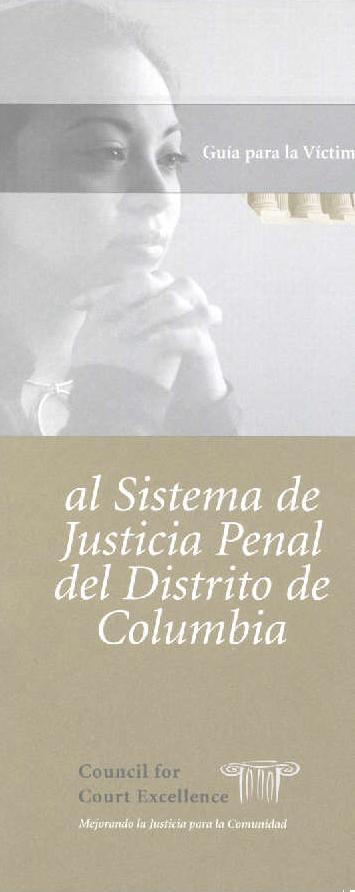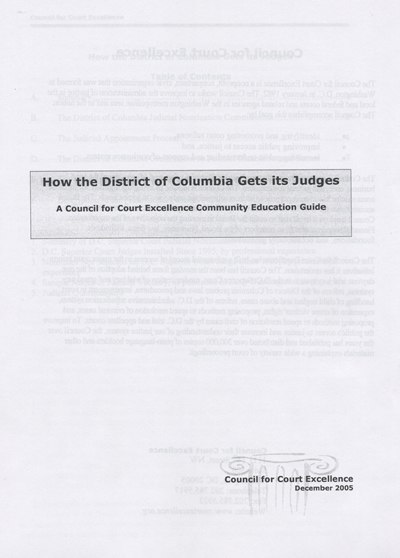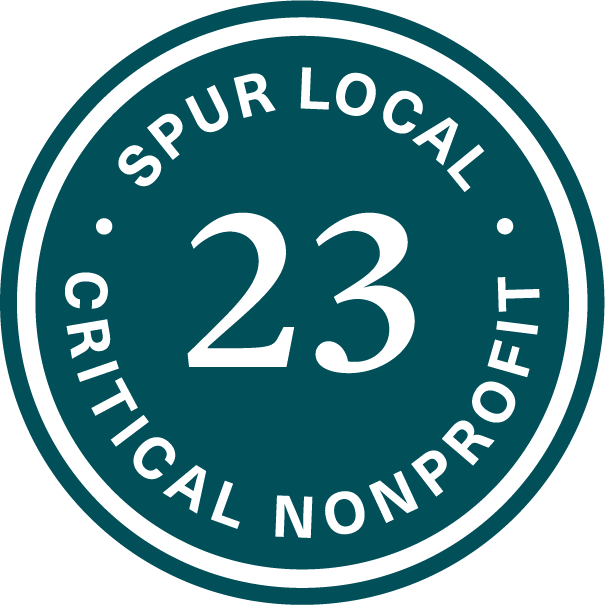Digital Library

This new edition is written to explain simply the District of Columbia probate process, the Non-Lawyer's Guide provides useful step-by-step information, a glossary of terms and helpful contacts, on how to settle the financial affairs and distribute the property of a deceased Washington, DC residents. Please call 202.785.5917 to order over the phone.

(Spanish Version of When Someone Dies.) Los conceptos y el lenguaje jurídico asociados con el proceso de convalidación testamentaria pueden resultar confusos. Esta guía ha sido diseñada para ayudar a habitantes de la ciudad de Washington a navegar el sistema para que no haya problema alguno cuando usted ó alguien de su familia fallezca. Recuerde que la convalidación testamentaria generalmente se realiza en la ciudad o condado en el que la persona fallecida era residente.

This "fill-in-the-blanks" estate planning Record Book is organized to help you list and record the location of your important personal and financial papers. It is a handy reference which has been distributed widely throughout the nation.

(Spanish Version of the Personal Affairs Record Book.) Esto es un libreto acompañante a Cuando Alguien Fallece: Una Guía sobre el Proceso Testamentario y de Sucesiones en Washington, DC para Personas que no son Abogados.

The Court Guide has been updated and is being published to serve two purposes: (1) to give practical information to the community involved or interested in the court system; and (2) to provide an educational supplement to those learning about the judicial branch of government. The content and orientation of this publication is in plain language in keeping with the Council for Court Excellence's commitment to increase public awareness about the courts, and to encourage greater public understanding and support for the justice system.

(Spanish Version of Community Guide to the Courts.) Esta guía ha sido actualizada e impresa por dos razones: (1) para poner al alcance información práctica a los miembros de nuestra comunidad que estén involucrados o interesados en el sistema de cortes; y (2) para apoyar a aquellos que deseen informarse y aprender sobre la tercera rama de nuestro gobierno.

El Acto de derechos de víctimas enmienda de 1988 del Distristo de Columbia proporciona a víctimas de un crimen violente la opportunidad de archivar un papel que el juez considerará durante el tiempo de sentenciar.Este follete ha preparado para ayudarle a comprender sus derechos como una víctim, y explica cómo completar el papel considerado duranta el tiempo de sentenciar. Llama 202.785.5917 para ordenar por teléfono.

This 2005 report is a comprehensive guide to the merit-based judicial nomination and renomination process for the District of Columbia Superior Court and Court of Appeals. Until now there has been little information on this important topic available to the public in an accessible way. The Council for Court Excellence guide describes the nine steps of the appointment process, from notice that a judge is retiring to public investiture of that judge’s replacement, and it describes the two D.C. Commissions which participate in evaluating judicial applicants.

Revised in 1999, the D.C. Victim's Guide is an accessible, easy-to-understand reference for a victim, their family or friends, or a witness of a crime who needs to better understand the steps involved in bringing a case to trial and the victim/witness' role in this process. Please call 202.785.5917 to order over the phone.

The D.C. Victims Rights Amendment Act of 1988 provides victims of a violent crime with the opportunity to file a victim impact statement to be considered by a judge at the time of sentencing. This brochure helps you understand your rights as a victim of crime, and explains how to complete a victim impact statement form. Please call 202.785.5917 to order over the phone.


